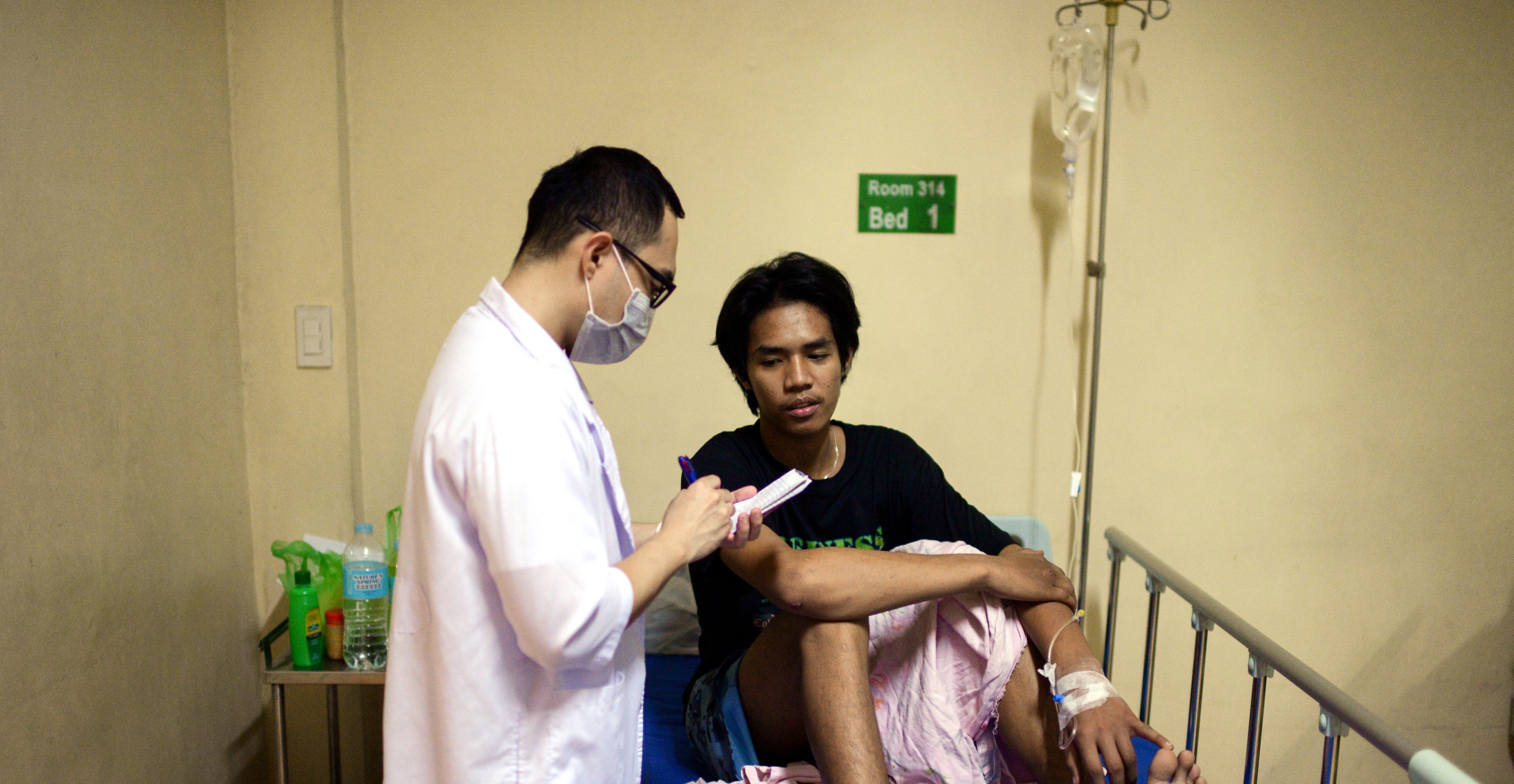COVID-19 sparked an economic crisis 'like no other' - but these measures can help now: WHO, IMF

International Monetary Fund (IMF) Managing Director Kristalina Georgieva Image: REUTERS/Mike Theiler - RC132C9B7C60
- The World Health Organization held a media briefing to update the public on the COVID-19 outbreak. Streamed live at 18.30 CET on Friday, 3 April.
- Guest Kristalina Georgieva, Managing Director of the International Monetary Fund (IMF) said COVID-19's economic impact was "worse than the global economic crisis."
- The IMF head shared measures the agency was taking to help blunt the economic impact of the COVID-19 crisis.
Lockdowns around the world have placed the world's economies at a standstill, slowing the virus' spread, but enacting a heavy economic toll.
"This is a crisis like no other," said Kristalina Georgieva, Managing Director of the International Monetary Fund (IMF) at a briefing for the World Health Organization (WHO). Georgieva noted that the crisis was like nothing the agency had seen in 75 years and one that would be more severe than the last global financial crisis.
At Friday's briefing, WHO officials and the IMF Director discussed the global financial measures that will be needed to blunt the economic impact of the current coronavirus crisis, ensuring protections for health systems and the world's most vulnerable.
Strengthening health systems financially
A fully-funded health system is key to fighting both virus and stemming the economic impact, as explained by Dr Tedros Adhanom Ghebreyesus, Director-General. He called on all countries to provide the following:
1. Full funding for core public health measures such as: case-finding, testing, contact tracing, collecting data, and communication and information campaigns.
2. Strong financial supporting for health systems and partners, to ensure that health workers are paid their salaries, and health facilities have the reliable funding they need to purchase essential medical supplies.
3. The removal of financial barriers to care. The Director-General noted that several countries had suspended user fees and were providing free testing and care for coronavirus regardless of insurance, citizenship or residence status. "We encourage these measures. This is an unprecedented crisis, which demands an unprecedented response"
"This is an unprecedented crisis, which demands an unprecedented response."
”Strengthening the world's economies
Economic measures must also account for the world's most vulnerable, said Georgieva, including emerging markets and developing economies. Key to the IMF's response includes:
1. Prioritized help for emerging markets and developing economies: these countries are hard hit by the crisis, with fewer resources, collapsing commodities export markets, lost capital and weakened health systems.
As a result, the IMF would prioritize resources for vulnerable countries. "The same way the virus hits vulnerable people with medical pre-conditions hardest, the economic crisis hits vulnerable economies the hardest."
"Saving lives and protecting livelihoods ought to go hand-in-hand," Georgieva added.
2. Emergency financing. Georgieva said the IMF was mobilizing emergency funding and had doubled the availability of those resources from $50 billion up to $100 billion, funds that could also help emerging markets and developing economies.
A record number of countries, 85, had reached out to the agency for financing at the same time. "The demand for our financing has skyrocketed," said Georgieva.
"We have a $1 trillion war chest and we are determined to use as much as necessary in protecting the economy from the scarring of this crisis."
3. Eased debt obligations for the IMF's poorest members. Georgieva said that the IMF was mobilizing emergency financing assistance to countries and had increased its capability to ease debt service obligations for these members through the Catastrophe Containment Relief Trust. With the World Bank, she said, the IMF was advocating for a standstill of debt service from the poorest countries to official bilateral creditors.
"This is humanity’s darkest hour," said Georgieva. "It is a threat to the entire world that requires us to stand tall and protect the most vulnerable of our fair citizens of this planet."
Don't miss any update on this topic
Create a free account and access your personalized content collection with our latest publications and analyses.
License and Republishing
World Economic Forum articles may be republished in accordance with the Creative Commons Attribution-NonCommercial-NoDerivatives 4.0 International Public License, and in accordance with our Terms of Use.
The views expressed in this article are those of the author alone and not the World Economic Forum.
Stay up to date:
COVID-19
Forum Stories newsletter
Bringing you weekly curated insights and analysis on the global issues that matter.
More on Health and Healthcare SystemsSee all
Mille Sofie Stenmarck Korsgaard and Daniel Holth Larsen
November 20, 2025






